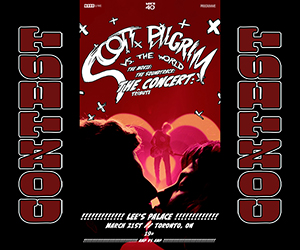GEORGE HARRISON
LIVING IN THE MATERIAL WORLD (50th ANNIVERSARY EDITION)
DARK HORSE/BMG

There was a lot riding on Living In The Material World when George Harrison released the album in 1973. His All Things Must Pass album proved to be one of the greatest albums of the 1970s and of all time. It was also a huge success. His concerts for Bangladesh established a whole new form of fundraising concerts and, again, was one of the greatest events in rock history. Harrison had a lot to live up to, and he not only lived up to expectations, but surpassed all hopes for the new album. It had been three years since Harrison had released an album, and fans were eager to see where Harrison would take them. The album is being re-released to celebrate its 50th Anniversary.
Living In The Material World, lyrically, is a very spiritual album, similar to All Things Must Pass, and that is where the similarity ends. Whereas All Things Must Pass was co-produced by Phil Spector, Harrison for the most part produced Living In The Material World alone and it is a much more stripped-down affair. Musically, it is very sparse and a meditative album. Songs like “Be Here Now”, “Who Can See It”, and the sublime “That Is All” are almost mantras and quite restrained. While songs like “Don’t Let Me Wait Too Long” and the title track, “Living In The Material World”, which features Ringo Starr on drums, are straight-ahead rock/pop classics. The only single off the album, “Give Me Love (Give Me Peace On Earth)” is a perfect pop song, expressing Harrison’s yearning for the planet and the people, featuring some of his most inspiring slide guitar of his career. The song is built around it.
Lyrically, it is a more searching album that All Things Must Pass. Harrison is looking for spiritual relief in the Material World. And there are some amusing tracks, like “Sue Me, Sue You Blues”, which is Harrison’s commentary on the legal battles of The Beatles. But songs like “Who Can See It” and the title track are Harrison searching for peace and answers.
As it is the 50th Anniversary, a deluxe version is available and well worth the expense. Living In The Material World is a beautifull-produced album, but with the previously unreleased material, one can hear the music stripped back and here these songs in an early form. “Don’t Let Me Wait Too Long (Take 49)” is an acoustic treatment of the song. Harrison’s voice is outstanding, as are his acoustic instrumentation. While “Living In The Material World (Take 31)” has a much rawer sound and vibe than the released version, and it demonstrates Harrison’s ability to show his ability to really let loose. “Try Some, Buy Some (Alternative Version)” is a gem, complete with a searing slide solo not found on the released version. Harrison wrote and co-produced a version of this song for Ronnie Spector for Apple Records, but in Harrison’s hands the song has a much more vulnerable and wistful feel to it.
“Sue me, Sue You Blues (Take 5)” features Harrison giving instruction to the musicians, and because this is an early take, it has a raw, exciting feel to the song. Also, there is the addition of Harrison’s version of “Sunshine Life For Me (Sail Away Raymond)’, a song he gave to Ringo Starr for Ringo’s Ringo album. As with Starr’s version, Harrison is supported by members of The Band and Starr. It served as a map for Starr, but in Harrison’s hands, the song becomes a country classic featuring some of Harrison’s finest vocals. It is a gem.
In 1973, the album made number one and was well received by critics and fans alike. Over time, the album has aged extremely well, garnering new fans every year. The songs, which are remixed here, were originally produced perfectly and the songs have all aged well. Living In The Material World – 50th Anniversary Edition is a new way to enjoy the album. The album remix is great and maintains everything brilliant of the original album. The bonus tracks are well worth listening to and bring a whole new dimension to the album. The packaging is beautiful, and for collectors there are a few variants. Even though this album made number one in 1973 and was quite huge when first released. This is a good time to rediscover this classic album.
Artist Links
SPILL ALBUM REVIEW: GEORGE HARRISON – LIVING IN THE MATERIAL WORLD (50th ANNIVERSARY EDITION)
Aaron Badgley














